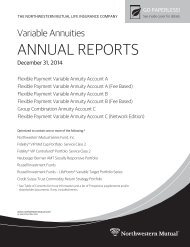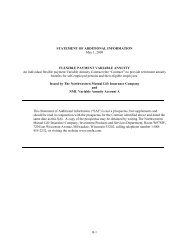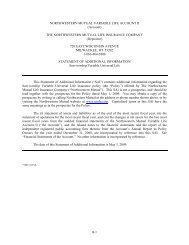will not support the position of a company's management in any situation where it determines that theratification of management's position would adversely affect the investment merits of owning thatcompany's shares.THE PROXY GROUPThe Proxy Group is part of the Franklin Templeton Companies, LLC Legal Department and is overseenby legal counsel. Full-time staff members are devoted to proxy voting administration and providingsupport and assistance where needed. On a daily basis, the Proxy Group will review each proxy uponreceipt as well as any agendas, materials and recommendations that they receive from RiskMetrics, GlassLewis, or other sources. The Proxy Group maintains a log of all shareholder meetings that are scheduledfor companies whose securities are held by Investment Manager's managed funds and accounts. For eachshareholder meeting, a member of the Proxy Group will consult with the research analyst that follows thesecurity and provide the analyst with the meeting notice, agenda, RiskMetrics and/or Glass Lewisanalyses, recommendations and any other available information. Except in situations identified aspresenting material conflicts of interest, Investment Manager's research analyst and relevant portfoliomanager(s) are responsible for making the final voting decision based on their review of the agenda,RiskMetrics and/or Glass Lewis analyses, their knowledge of the company and any other informationreadily available. In situations where the Investment Manager has not responded with voterecommendations to the Proxy Group by the deadline date, the Proxy Group may defer to the voterecommendations of an independent third party provider of proxy services. Except in cases where theProxy Group is deferring to the voting recommendation of an independent third party service provider,the Proxy Group must obtain voting instructions from Investment Manager's research analyst, relevantportfolio manager(s), legal counsel and/or the Advisory Client or Proxy Review Committee prior tosubmitting the vote. In the event that an account holds a security that the Investment Manager did notpurchase on its behalf, and the Investment Manager does not normally consider the security as a potentialinvestment for other accounts, the Proxy Group may defer to the voting recommendations of anindependent third party service provider.GENERAL PROXY VOTING GUIDELINESInvestment Manager has adopted general guidelines for voting proxies as summarized below. In keepingwith its fiduciary obligations to its Advisory Clients, Investment Manager reviews all proposals, eventhose that may be considered to be routine matters. Although these guidelines are to be followed as ageneral policy, in all cases each proxy and proposal will be considered based on the relevant facts andcircumstances. Investment Manager may deviate from the general policies and procedures when itdetermines that the particular facts and circumstances warrant such deviation to protect the interests of theAdvisory Clients. These guidelines cannot provide an exhaustive list of all the issues that may arise norcan Investment Manager anticipate all future situations. Corporate governance issues are diverse andcontinually evolving and Investment Manager devotes significant time and resources to monitor thesechanges.INVESTMENT MANAGER’S PROXY VOTING POLICIES AND PRINCIPLESInvestment Manager's proxy voting positions have been developed based on years of experience withproxy voting and corporate governance issues. These principles have been reviewed by various membersof Investment Manager's organization, including portfolio management, legal counsel, and InvestmentManager's officers. The Board of Directors of Franklin Templeton’s U.S.-registered mutual funds willapprove the proxy voting policies and procedures annually.The following guidelines reflect what Investment Manager believes to be good corporate governance andbehavior:Board of Directors: The election of directors and an independent board are key to good corporategovernance. Directors are expected to be competent individuals and they should be accountable andB-110
esponsive to shareholders. Investment Manager supports an independent board of directors, and prefersthat key committees such as audit, nominating, and compensation committees be comprised ofindependent directors. Investment Manager will generally vote against management efforts to classify aboard and will generally support proposals to declassify the board of directors. Investment Manager willconsider withholding votes from directors who have attended less than 75% of meetings without a validreason. While generally in favor of separating Chairman and CEO positions, Investment Manager willreview this issue on a case-by-case basis taking into consideration other factors including the company'scorporate governance guidelines and performance. Investment Manager evaluates proposals to restore orprovide for cumulative voting on a case-by-case basis and considers such factors as corporate governanceprovisions as well as relative performance. The Investment Manager generally will support non-bindingshareholder proposals to require a majority vote standard for the election of directors; however, if theseproposals are binding, the Investment Manager will give careful review on a case-by-case basis of thepotential ramifications of such implementation.Ratification of Auditors: Investment Manager will closely scrutinize the role and performance ofauditors. On a case-by-case basis, Investment Manager will examine proposals relating to non-auditrelationships and non-audit fees. Investment Manager will also consider, on a case-by-case basis,proposals to rotate auditors, and will vote against the ratification of auditors when there is clear andcompelling evidence of accounting irregularities or negligence attributable to the auditors.Management & Director Compensation: A company's equity-based compensation plan should be inalignment with the shareholders' long-term interests. Investment Manager believes that executivecompensation should be directly linked to the performance of the company. Investment Managerevaluates plans on a case-by-case basis by considering several factors to determine whether the plan isfair and reasonable. Investment Manager reviews the RiskMetrics quantitative model utilized to assesssuch plans and/or the Glass Lewis evaluation of the plan. Investment Manager will generally oppose plansthat have the potential to be excessively dilutive, and will almost always oppose plans that are structuredto allow the repricing of underwater options, or plans that have an automatic share replenishment"evergreen" feature. Investment Manager will generally support employee stock option plans in which thepurchase price is at least 85% of fair market value, and when potential dilution is 10% or less.Severance compensation arrangements will be reviewed on a case-by-case basis, although InvestmentManager will generally oppose "golden parachutes" that are considered excessive. Investment Managerwill normally support proposals that require that a percentage of directors' compensation be in the form ofcommon stock, as it aligns their interests with those of the shareholders.Anti-Takeover Mechanisms and Related Issues: Investment Manager generally opposes anti-takeovermeasures since they tend to reduce shareholder rights. However, as with all proxy issues, InvestmentManager conducts an independent review of each anti-takeover proposal. On occasion, InvestmentManager may vote with management when the research analyst has concluded that the proposal is notonerous and would not harm Advisory Clients' interests as stockholders. Investment Manager generallysupports proposals that require shareholder rights plans ("poison pills") to be subject to a shareholdervote. Investment Manager will closely evaluate shareholder rights' plans on a case-by-case basis todetermine whether or not they warrant support. Investment Manager will generally vote against anyproposal to issue stock that has unequal or subordinate voting rights. In addition, Investment Managergenerally opposes any supermajority voting requirements as well as the payment of "greenmail."Investment Manager usually supports "fair price" provisions and confidential voting.Changes to Capital Structure: Investment Manager realizes that a company's financing decisions have asignificant impact on its shareholders, particularly when they involve the issuance of additional shares ofcommon or preferred stock or the assumption of additional debt. Investment Manager will carefullyreview, on a case-by-case basis, proposals by companies to increase authorized shares and the purpose forthe increase. Investment Manager will generally not vote in favor of dual-class capital structures toincrease the number of authorized shares where that class of stock would have superior voting rights.Investment Manager will generally vote in favor of the issuance of preferred stock in cases where theB-111
- Page 4:
APPENDIX F - Proxy Voting Policies
- Page 9 and 10:
stocks that make up that index. Str
- Page 11 and 12:
Interest rate swaps do not involve
- Page 13 and 14:
the Adviser or Sub-Adviser will not
- Page 17 and 18:
Forward Contracts. The Portfolios m
- Page 19 and 20:
principal amount as the call writte
- Page 21 and 22:
Options on Foreign Currencies. The
- Page 23 and 24:
securities. The issuers of the unde
- Page 25 and 26:
the former pools. However, timely p
- Page 27 and 28:
CMO residuals are generally purchas
- Page 29:
utilize the underlying assets may r
- Page 32 and 33:
include range floaters which are a
- Page 34 and 35:
par unless the price of the underly
- Page 36 and 37:
to changes in interest rates genera
- Page 38 and 39:
corresponding floaters. The underly
- Page 40 and 41:
A Portfolio will not enter into suc
- Page 42 and 43:
egulations. The presence of an issu
- Page 44 and 45:
Portfolio TurnoverPortfolio turnove
- Page 46 and 47:
The ability of the Portfolio to ach
- Page 48 and 49:
Advisors, LLC, in accordance with t
- Page 50 and 51:
OWNERSHIP OF SHARES OF THE FUNDAll
- Page 52 and 53:
on the next $50 million, 0.50% on t
- Page 54 and 55:
Independent Registered Public Accou
- Page 56 and 57:
Name of Portfolio 2008 2007 2006Int
- Page 58 and 59:
Broker High Yield Bond BalancedAsse
- Page 60 and 61: and cost of trade execution of Port
- Page 62 and 63: Effective April 30, 2008, the Fund
- Page 64 and 65: TAXES AND DIVIDENDSEach Portfolio i
- Page 66 and 67: APPENDIX A - Credit RatingsDescript
- Page 68 and 69: F2Good credit quality. A satisfacto
- Page 70 and 71: . Moody’s Commercial Paper (short
- Page 72 and 73: Plus (+) or minus (-)The ratings fr
- Page 74 and 75: APPENDIX B - Directors and Officers
- Page 76 and 77: Name, Address, andYear of BirthDavi
- Page 78 and 79: APPENDIX C - Ownership of Shares of
- Page 80 and 81: SMALL CAP VALUE PORTFOLIOGeneral Ac
- Page 82 and 83: APPENDIX D - Portfolio ManagersOthe
- Page 84 and 85: PortfolioManager(s)FundRegisteredIn
- Page 86 and 87: Compensation of Portfolio ManagersM
- Page 88 and 89: management firms. Performance is pr
- Page 90 and 91: Portfolio managers are eligible for
- Page 92 and 93: PortfolioPortfolio Manager(s)Dollar
- Page 94 and 95: On August 25, 2005, the Court enter
- Page 96 and 97: MSA’s Equity Trading Department s
- Page 98 and 99: ERISA ClientsIn the case of client
- Page 100 and 101: Shareholder Ability to Call Special
- Page 102 and 103: • Exercise price• Participation
- Page 104 and 105: Amend Quorum RequirementsVote propo
- Page 106 and 107: Vote proposals to increase blank ch
- Page 108 and 109: employees of Investment Manager and
- Page 112 and 113: company specifies the voting, divid
- Page 114 and 115: egarding whether Investment Manager
- Page 116 and 117: 3. The issuer is an entity particip
- Page 118 and 119: manager(s) are responsible for maki
- Page 120 and 121: Global Corporate Governance: Invest
- Page 122 and 123: 13. The Proxy Group will review the
- Page 124 and 125: determined by those investment comm
- Page 126 and 127: T. Rowe Price has adopted these Pro
- Page 128 and 129: shareholders and the effect on shar
- Page 130 and 131: portfolio company could have influe
- Page 132 and 133: The Proxy Voting Service will refer
- Page 134 and 135: that substantially differs from dom
- Page 136 and 137: 15. Janus will generally vote in fa
- Page 138 and 139: 46. For shareholder proposals outsi
- Page 140 and 141: 2. Staggered BoardIf a company has
- Page 142 and 143: proposed for a legitimate business
- Page 144 and 145: APPENDIX G - Portfolio Holdings Dis
- Page 146: ICP Securities LLCIntermonte Securi
















